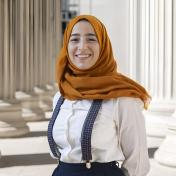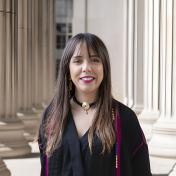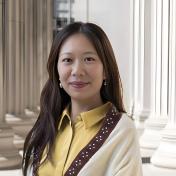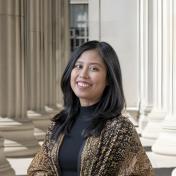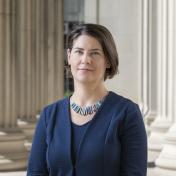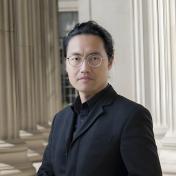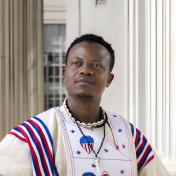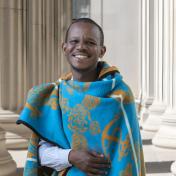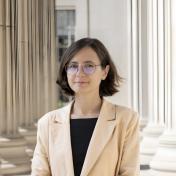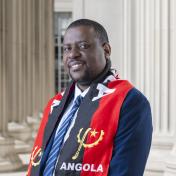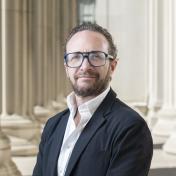Visiting Fellows
- Image
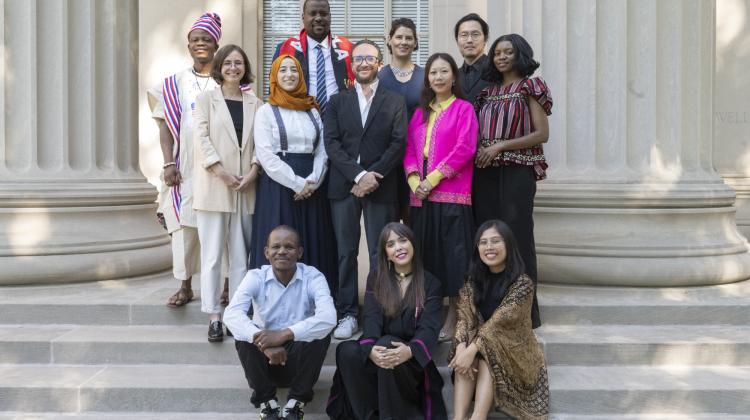
Special Program for Urban and Regional Studies
The Special Program for Urban and Regional Studies (SPURS) is a one-year non-degree program for mid-career individuals to enhance and reflect on their professional practice in planning and international development. SPURS is a host of the Humphrey Fellowship, a Fulbright exchange program.
The SPURS Program is an opportunity for mid-career professionals who are or will be shaping policy in developing countries to further develop their planning, policy-making, and problem-solving skills. Each year, a cohort of 10-12 Fellows engage in a flexible program of study and research focusing on the problems of urban and regional change within the broader context of development. Fellows are drawn from an extraordinary range of backgrounds and experiences, including such varied fields as architecture, planning, sociology, economics, government, business, engineering, or from any field dealing with issues facing developing and newly industrializing countries. Since the program was founded in 1967, SPURS has welcomed more than 800 Fellows from over 130 countries to MIT. Read more about SPURS in a 2024 MIT News article.
Fellows are encouraged to design a course of study that best suits their individual needs and interests, to work closely with faculty on independent research projects, and to interact with the entire DUSP community. Through the opportunity for learning and reflection, they are exposed to new theories and approaches from other Fellows, faculty, and other practitioners - ideas which they can later apply in their home countries. Fellows contribute to the intellectual life of DUSP by sharing their professional experiences and research findings. The year at MIT also helps them to develop strong connections with American institutions.
The program goals are threefold: Professional development encompasses reflection on professional practice; enhancement of professional knowledge and skills; broadening perspectives on development and planning issues; development of leadership and policy-making capabilities; and collaboration and networking with practitioners and researchers. Academic enhancement involves attendance in graduate-level courses (not for credit) and participation in academic research and initiatives. Cultural exchange occurs through cross-cultural discussions and dialogues; volunteering for community service; and participation in cultural events and activities.
Fellows are required to attend weekly SPURS/Humphrey seminar series, which brings distinguished scholars and practitioners to present and discuss recent ideas and projects in the areas of development. Fellows must also attend group site visits to planning agencies and organizations in the Boston area, a professional visit to New York City, and professional development and leadership workshops throughout the year. Fellows are expected to participate in independent professional development activities relevant to their individual interests, which could include site visits to organizations, attendance at conferences and seminars, and meetings with U.S. experts and professionals.
See the annual SPURS newsletters for more on events and activities, Fellows, and alumni.
SPURS Team
Bish Sanyal
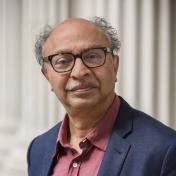 Ford International Professor of Urban Development and Planning
Ford International Professor of Urban Development and PlanningJonars Spielberg
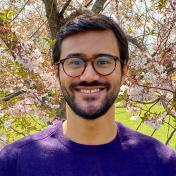 Assistant Director, SPURS/Humphrey Fellowship Programs
Assistant Director, SPURS/Humphrey Fellowship ProgramsJeff Levine, FAICP
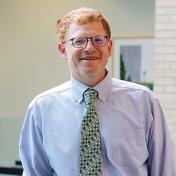 Associate Professor of the Practice of Economic Development & Planning
Associate Professor of the Practice of Economic Development & PlanningAidan Reid
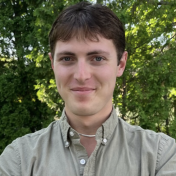 Program Assistant, SPURS/Humphrey Fellowship
Program Assistant, SPURS/Humphrey FellowshipDebbie Levey
Alumni Correspondent, SPURS
SPURS Application Information
Eligibility Criteria
SPURS is designed for mid-career professionals who hold positions of responsibility in public or private, for-profit or not-for-profit organizations concerned with urban, regional, and rural development. Successful candidates will have substantial backgrounds in fields as diverse as architecture, business, economics, engineering, geography, government, and sociology.
The principal requirements for admission are:
- an advanced degree or five or more years of work experience in a related field, or both;
- a strong command of English as shown by a minimum TOEFL score of 100 on the internet-based test (or 600 on the paper-based test, 250 on the computer-based test); or a minimum IELTS score of 7.
Fellows may be admitted as Visiting Scholars or Research Fellows.
- Visiting Scholar: Fellows must be in possession of a Ph.D. or an equivalent advanced degree, and must have made distinguished contributions in fields that are relevant to the areas of study in the Department of Urban Studies and Planning at MIT.
- Research Fellows: Fellows with significant work experience may be admitted as Research Fellows. These Fellows are pursuing a non-degree program and do not take subjects for credit. This option applies to Fellows awarded support by selected U.S. government agencies, international organizations, or by their own governments.
Application Deadline
SPURS applications are due by January 31 (approximately six months prior to the start of the academic year). Letters of recommendation from three references are also due by the same date. Applications may be accepted after this date on a case-by-case basis. Applicants will be notified of admissions decisions by April.
Applications for the 2026-2027 academic year are now open.
How to Apply
A complete application requires:
- SPURS application form including educational and cultural background information, English language proficiency information, and funding sources;
- Written statements on your professional background, objectives for the fellowship year, and future professional goals;
- Current resume including dates of your work history and full name of all degrees received;
- Certified transcript of each university attended (excluding MIT);
- Three letters of recommendation from supervisors, professors, or other professional associates knowledgeable about your work, along with a reference report form for each letter.
SPURS FAQ
Eligibility Criteria
SPURS is designed for mid-career professionals who hold positions of responsibility in public or private, for-profit or not-for-profit organizations concerned with urban, regional, and rural development. Successful candidates will have substantial backgrounds in fields as diverse as architecture, business, economics, engineering, geography, government, and sociology. The principal requirements for admission are an advanced degree or five or more years of work experience in a related field, or both; and a strong command of English as shown by a minimum TOEFL score of 100 on the internet-based test (or 600 on the paper-based test, 250 on the computer-based test) or minimum IELTS score of 7.
The Humphrey Fellowship Application
The Humphrey Fellowship application and selection process is completely independent of SPURS. To access the Humphrey Fellowship application and learn more about applying, please contact the U.S. Embassy (Public Affairs Section) or Binational Fulbright Commission in your country.
More information can be found on the Humphrey Fellowship Program site.
Courses
All Fellows attend a weekly seminar series centered on U.S. and international development, the core component of the program. The seminar series brings distinguished scholars and practitioners to MIT to present, discuss and debate recent ideas and projects in the areas of development.
As a Fellow and a professional at MIT, you will be able to participate as a listener in classes available to DUSP graduate students, and limited courses at Harvard. Some classes are restricted and may not be available to SPURS Fellows. Fellows should plan to take no more than 2 classes each semester in addition to the weekly seminar required by the program. You will not receive credits or grades for the classes you have attended; however, to gain most from the classes you attend, you should take part in the class discussions and complete all assignments.
Professional Affiliation
The Humphrey Fellowship Program requires that all Humphrey Fellows conduct a professional affiliation at a U.S. institution (in a business, non-profit, or government sector) for a minimum of 30 working days. A professional affiliation in Boston allows flexibility in managing your time, though affiliations elsewhere in the country are possible. Fellows who would like to conduct their professional affiliation in a city other than Boston are advised to do this during January (MIT’s Independent Activities Period) or at the end of the spring term in May. SPURS Fellows are not required to conduct a professional affiliation, although it is a possibility that they may consider.
Housing
Fellows may live in MIT on-campus graduate housing if available or may find off-campus housing in the Boston area. Availability of MIT on-campus housing is limited and not guaranteed. It is the Fellow’s responsibility to secure housing, though the program staff assists in the housing search process.
Visa
The MIT International Scholars Office (ISchO) facilitates the arrival and appointment of international visitors who are invited to campus to teach, conduct research, observe, and collaborate.
ISchO offers a wealth of resources and administers visa sponsorship.
Costs and Funding
Program Fees and Living Expenses
The program fee for the academic year 2026-2027 is $17,100. In addition to the program fee, Fellows must support their living expenses, such as housing, food, transportation, and health insurance. Current living expenses are estimated at $4,167 per month for a single Fellow (approximately $41,700 for ten months) and health insurance for a single Fellow is estimated at an additional $5,500 per year.
Funding
SPURS does not provide any form of fellowship. All Fellows are expected to be fully funded by outside sources such as their government, employer, university, foundation, or other relevant organization. Personal savings used toward meeting the J-1 visa funding requirement may account for no more than 10% of the total funding.
Contact
If you have additional questions or need clarification on any of the FAQ, please email spurs-program@mit.edu.
Mel King Community Fellows
The Mel King Community Fellows Program brings together leaders to learn and explore how to advance economic democracy in cities and regions.
The program is dedicated to the legacy of Mel King, a still-active champion of cities and the communities they comprise. Mel King initiated the Community Fellows Program in 1970 when he was an adjunct professor at MIT.
The fellowship program builds on a 40-year-old tradition of bridging practice-based knowledge and academic research. Mel King Fellows are recognized leaders in communities across the country and have experience in a range of social justice pursuits. The program’s goal is to create a dispersed learning network among the Fellows for co-creating knowledge.
The program provides fellows an opportunity to examine:
- Models of community planning and development that advance community wellbeing via urban sustainability, democratic participation, and shared wealth generation
- Shifts in methods and approaches that will be required by these new models, including via culture, arts and Emerging aesthetic practices; and
- Tools and practices that will aid them in collaborative innovation and knowledge-sharing
Learn more about the current cohort of Mel King Fellows and their work.
- Image
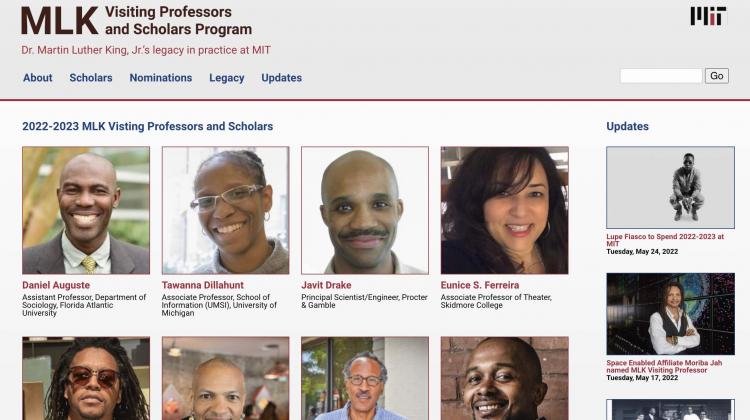
Martin Luther King Jr. Visiting Professors and Scholars
The Massachusetts Institute of Technology established the Dr. Martin Luther King Jr. Visiting Professor Program to enhance and recognize the contributions of outstanding scholars. The program honors the life and legacy of Dr. Martin Luther King Jr. by increasing the presence of minority scholars at MIT.
Dr. Martin Luther King, Jr. Visiting Professors and Scholars enhance their scholarship through intellectual interactions with MIT peers and enrich the intellectual life of the Institute with their participation in MIT research and academic programs.
Learn more about the current MLK Visiting Professors and Scholars.
Learn more about MLK Visiting Professors and Scholars at DUSP.



